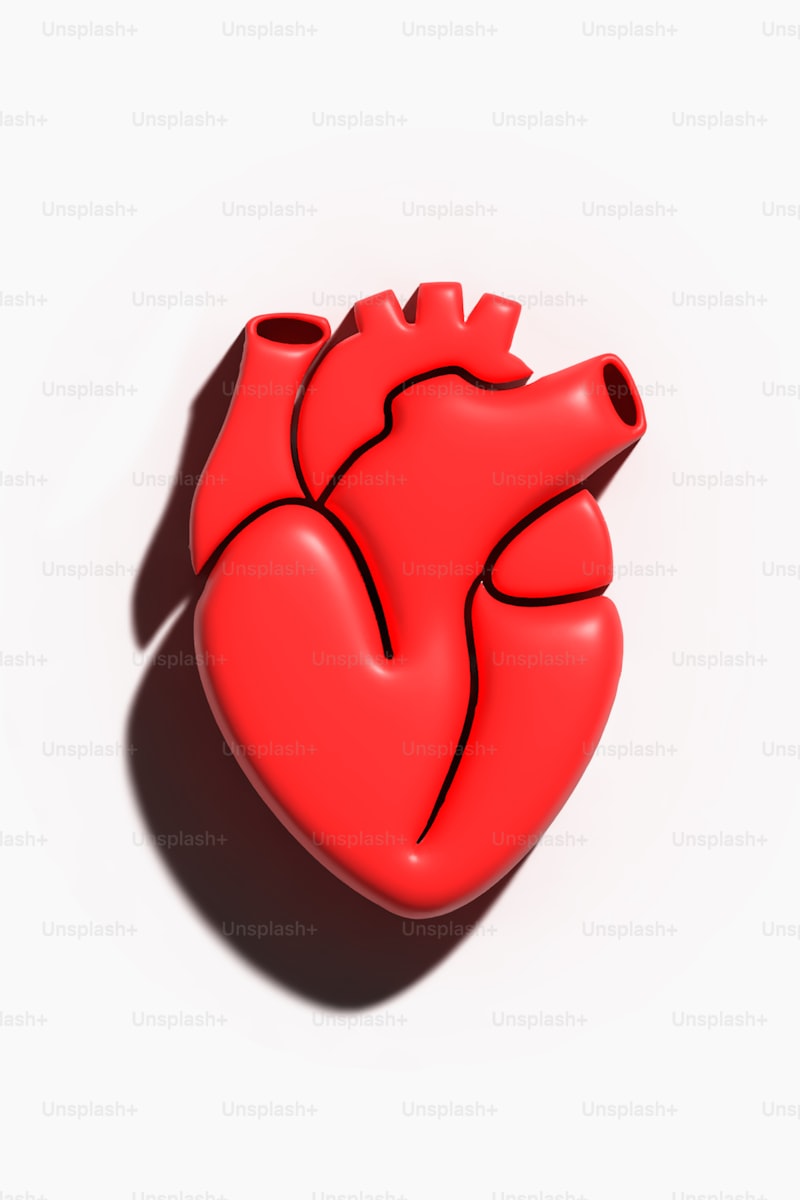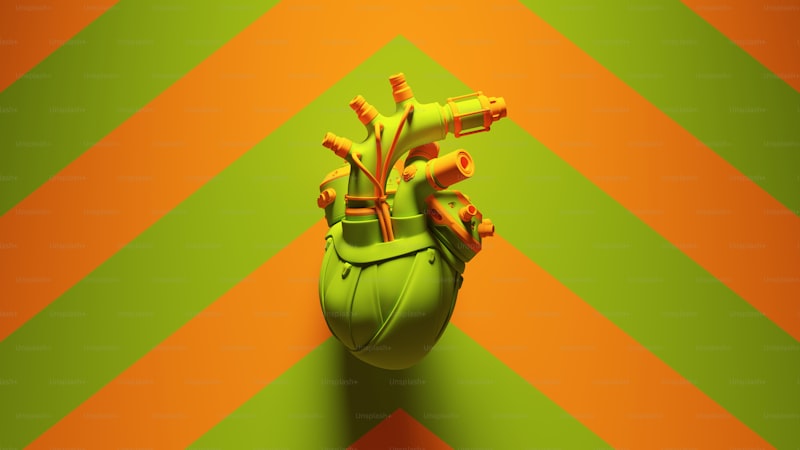At its core, cardiovascular health refers to the health of your heart and blood vessels. It encompasses a range of factors, from blood pressure and cholesterol levels to the strength of your heart muscle itself. Imagine your heart as a finely tuned engine: it needs the right fuel (nutrients), regular maintenance (exercise), and a clean pipeline (healthy blood vessels) to function optimally.
One key aspect of cardiovascular health is maintaining a healthy blood pressure. Blood pressure measures the force of blood against the walls of your arteries as your heart pumps it around your body. High blood pressure, also known as hypertension, can strain your heart and arteries over time, increasing the risk of serious health problems like heart disease or stroke.

Another vital factor is cholesterol levels. Cholesterol is a waxy substance found in your blood and cells. While your body needs cholesterol to build healthy cells, too much LDL cholesterol (often referred to as “bad” cholesterol) can build up in your arteries, narrowing or blocking them. On the other hand, HDL cholesterol (“good” cholesterol) helps remove LDL cholesterol from the bloodstream, reducing the risk of heart disease.

Regular physical activity plays a significant role in cardiovascular health. Exercise strengthens the heart muscle, improves circulation, and helps manage weight, blood pressure, and cholesterol levels. Even moderate physical activity, like brisk walking or swimming, can make a big difference in your cardiovascular health over time.
Maintaining a balanced diet rich in fruits, vegetables, whole grains, lean proteins, and healthy fats is another cornerstone of heart health. A diet low in saturated fats, trans fats, cholesterol, and sodium can help reduce the risk of heart disease and support overall cardiovascular well-being.
Unlocking the Secrets of Heart Health: A Comprehensive Guide
Heart health is not just a matter of luck; it’s about understanding how to care for your heart. From diet to exercise and everything in between, the secrets to a healthy heart are within your grasp. Let’s dive into what makes a heart tick and how you can keep yours in top shape.
Firstly, diet plays a pivotal role in heart health. Think of your heart as a finely tuned engine that requires the right fuel to function optimally. Incorporating a balanced diet rich in fruits, vegetables, whole grains, and lean proteins can significantly reduce the risk of heart disease. Avoiding saturated fats and excessive salt intake helps maintain healthy blood pressure and cholesterol levels, crucial factors in heart health.
Exercise is another key player in the journey to a healthy heart. Regular physical activity not only strengthens the heart muscle but also improves circulation, lowers blood pressure, and helps manage weight. Aim for at least 150 minutes of moderate-intensity exercise each week, such as brisk walking, swimming, or cycling, to keep your heart pumping strong.


Stress management is often overlooked but essential for heart health. Chronic stress can contribute to high blood pressure and heart disease. Finding healthy outlets such as meditation, yoga, or hobbies can significantly reduce stress levels and promote overall well-being.
Sleep is another cornerstone of heart health. Quality sleep allows the heart to rest and repair itself. Aim for 7-9 hours of sleep each night to support heart function and reduce the risk of cardiovascular problems.
Additionally, maintaining a healthy weight and avoiding smoking are crucial for heart health. Excess weight puts strain on the heart, while smoking damages blood vessels and increases the risk of heart disease.
Achieving optimal heart health involves a holistic approach. By adopting a heart-healthy diet, staying physically active, managing stress, prioritizing sleep, maintaining a healthy weight, and avoiding smoking, you can unlock the secrets to a healthy heart and enjoy a longer, happier life.
The Surprising Link Between Diet and Cardiovascular Longevity
Your heart is a powerhouse, tirelessly pumping blood throughout your body, and like any other muscle, it needs the right fuel to function optimally. Research increasingly shows that a diet rich in fruits, vegetables, whole grains, and lean proteins can significantly lower the risk of cardiovascular diseases like heart attacks and strokes. These foods provide essential nutrients such as vitamins, minerals, antioxidants, and fiber that support heart health.
On the flip side, diets high in processed foods, sugars, unhealthy fats, and excessive salt can contribute to the development of heart disease. Foods like sugary drinks, fast food, and snacks laden with trans fats can raise cholesterol levels, increase blood pressure, and promote inflammation in the body—factors that spell trouble for your heart over time.
Think of your heart as the engine of a car. Just as the type of fuel you put into a car affects its performance and longevity, the food you consume directly impacts how well your heart functions and how long it will keep ticking. Choosing nutrient-dense foods is like giving your heart premium fuel—it helps maintain proper blood flow, keeps arteries clear, and reduces strain on the heart muscle.
But it’s not just about avoiding the bad stuff; incorporating heart-healthy habits can make a big difference too. Regular physical activity, managing stress, getting enough sleep, and not smoking are all vital for cardiovascular health. When combined with a nutritious diet, these habits form a powerful recipe for a healthy heart and a longer, more vibrant life.
Next time you’re reaching for a snack or planning a meal, consider the impact it will have on your heart. Small changes today can lead to significant benefits tomorrow. Take care of your heart—it’s the only one you’ve got!
Beyond the Beat: Innovations in Cardiovascular Research
One groundbreaking area gaining momentum is gene therapy. Traditionally, cardiovascular treatments focused on managing symptoms or correcting structural issues through surgery. Now, gene therapy offers a radical shift by targeting the underlying genetic causes of cardiovascular diseases. This approach holds potential to reprogram malfunctioning genes, potentially offering long-term solutions that go beyond merely treating symptoms.
Nanotechnology is another frontier captivating researchers. Imagine tiny particles, smaller than a cell, being engineered to deliver drugs directly to diseased heart tissues with pinpoint accuracy. This precision not only enhances treatment effectiveness but also minimizes side effects, offering hope for safer and more efficient therapies.

Advancements in artificial intelligence (AI) are also reshaping cardiovascular research. By analyzing vast amounts of patient data, AI can predict heart disease risk more accurately than ever before. This proactive approach allows for personalized treatment plans that cater to each individual’s unique health profile, ushering in an era of preventive cardiovascular care.
Beyond treatments, innovations in wearable technology are empowering individuals to monitor their heart health in real-time. From smartwatches capable of detecting irregular heartbeats to patches that monitor vital signs continuously, these devices provide early warnings that could potentially save lives.
Heart Disease Demystified: What You Need to Know
At its core, heart disease encompasses a range of conditions that affect the heart’s structure and function. From coronary artery disease, which narrows the arteries supplying blood to the heart muscle, to heart rhythm disorders like arrhythmias, each form presents unique challenges. This diversity underscores the importance of tailored approaches to diagnosis and treatment.
Imagine your heart as a finely tuned engine, tirelessly pumping blood throughout your body. Just as an engine needs proper maintenance to function optimally, your heart requires care and attention. Factors such as high blood pressure, cholesterol levels, smoking, diabetes, and obesity can strain the heart over time, increasing the risk of developing heart disease.
But here’s the twist: knowledge is power. By recognizing early warning signs like chest pain, shortness of breath, or irregular heartbeats, you can seek timely medical intervention. Diagnostic tools such as electrocardiograms (ECGs), echocardiograms, and stress tests provide invaluable insights into heart function, guiding treatment decisions.
Navigating the maze of treatment options can feel overwhelming. From lifestyle modifications—such as adopting a heart-healthy diet rich in fruits, vegetables, and lean proteins—to medications that control blood pressure and cholesterol levels, there are numerous avenues to explore. In more complex cases, surgical interventions like angioplasty or bypass surgery may be necessary to restore blood flow to the heart.
Frequently Asked Questions
What is hypertension (high blood pressure) and how can it be managed?
Learn about hypertension (high blood pressure) and how to manage it effectively. Discover lifestyle changes, such as diet and exercise, and medical treatments that can help control blood pressure levels. Understanding hypertension is key to maintaining cardiovascular health.
What are the risk factors for cardiovascular disease?
Learn about the risk factors that contribute to cardiovascular disease, including high blood pressure, high cholesterol levels, smoking, diabetes, unhealthy diet, physical inactivity, excessive alcohol consumption, and family history of heart disease. Understanding these factors can help you make informed lifestyle choices to reduce your risk.
How can I improve my heart health through diet and exercise?
Learn how to enhance your heart health with effective diet and exercise strategies. Discover practical tips to optimize your lifestyle, supporting cardiovascular well-being through balanced nutrition and regular physical activity.
What are the symptoms of a heart attack?
Learn about the symptoms of a heart attack, including chest pain or discomfort, shortness of breath, nausea, cold sweats, and pain or discomfort in other areas of the upper body such as the arms, back, neck, jaw, or stomach.
What are some common heart conditions and their treatments?
Discover common heart conditions and their treatments in this concise FAQ. Learn about conditions like coronary artery disease, arrhythmias, and heart valve problems, along with effective treatments such as medications, lifestyle changes, and surgical interventions.


